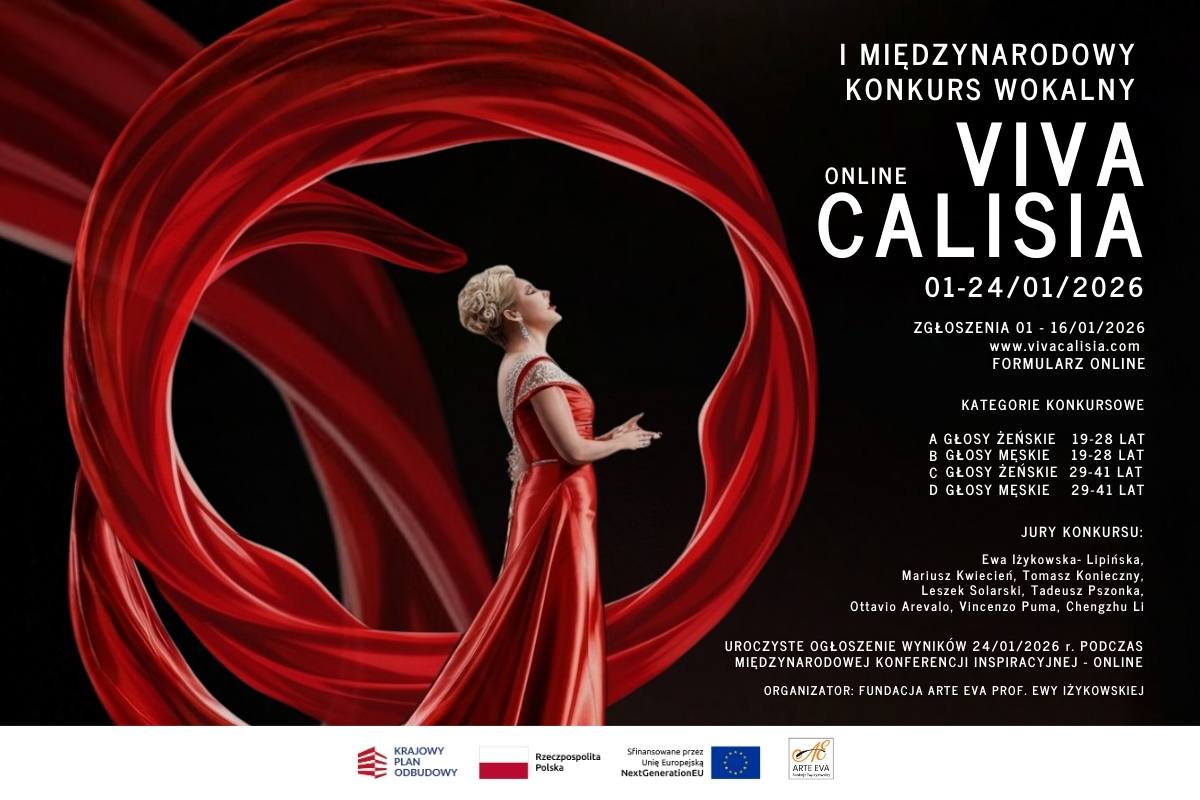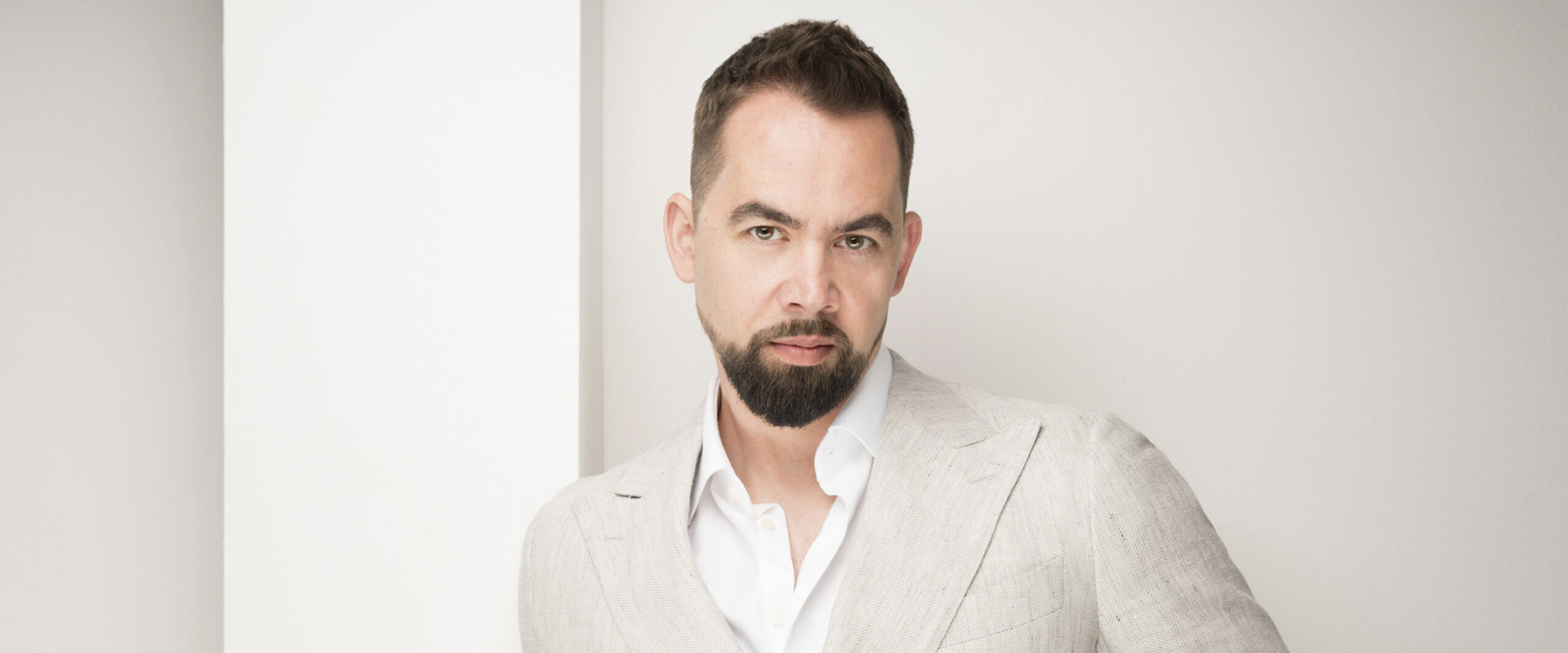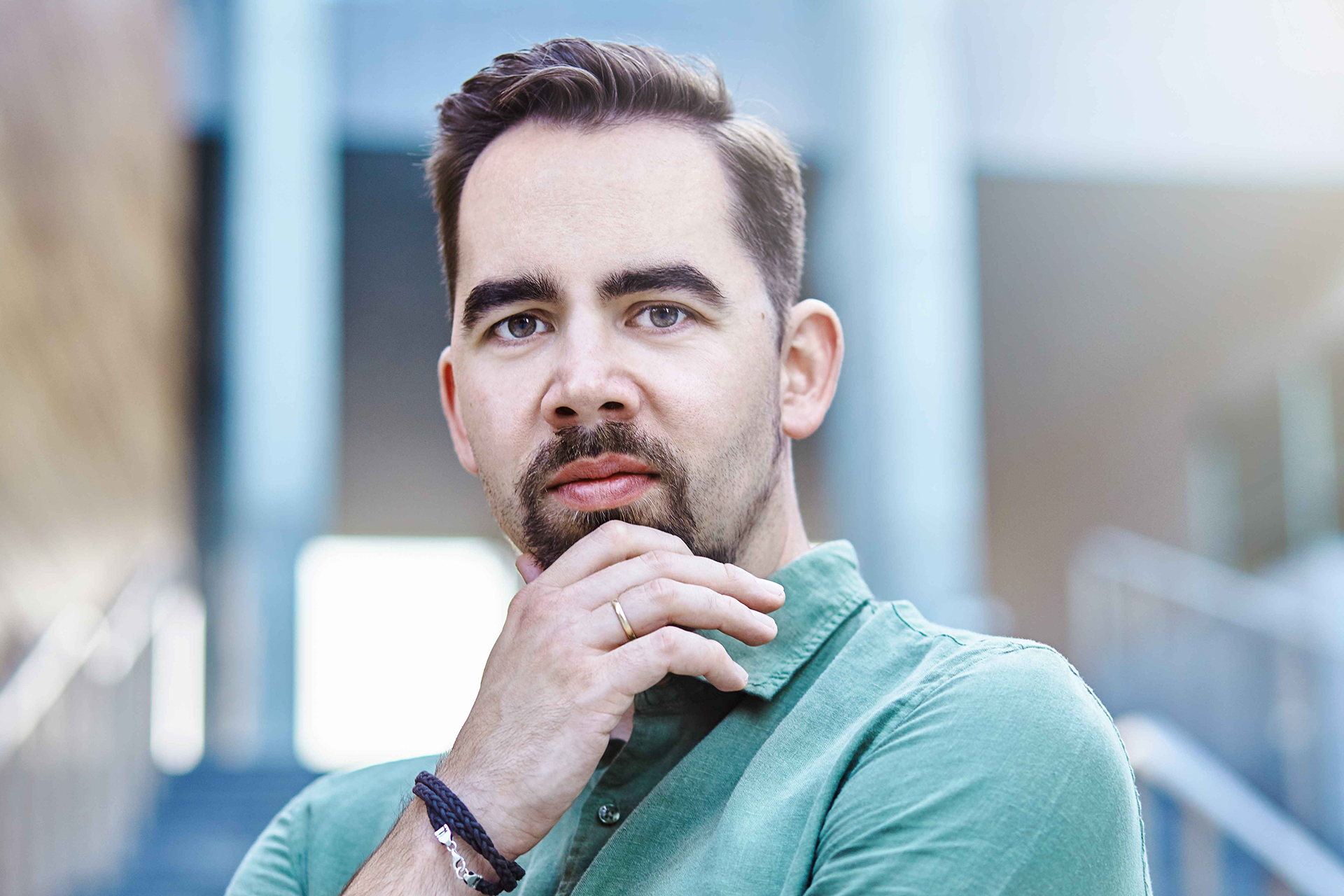 I try to give “one hundred percent and a little more” – interview with bass Adam Palka
I try to give “one hundred percent and a little more” – interview with bass Adam Palka
Bass Adam Palka appears as Count Walter in the revival of Verdi’s “Luisa Miller” under the baton of Lorenzo Passerini at the Staatsoper in Hamburg. Jolanta Łada-Zielke talks to the Polish singer.
You have become known to the audience as the excellent Mephisto, performing the aria Son lo spirito chi nega from the opera “Mefistofeles” by Arigo Boito, the recording of which is available on YouTube. Are you not afraid of being pigeonholed as this character?
I don’t see any danger of being pigeonholed here, as my schedule is filled with other roles. But I really like the Mephisto part. I debuted in Gounod’s “Faust” in Stuttgart, produced by Frank Castorf. When the Vienna State Opera had taken over the production, I was the only one from the Stuttgart cast to appear in the new show. I later sang Mephisto in Madrid, in the production directed by Àlex Ollé, and in London where I was covering for Ildebrando D’Arcangelo. I would compare this character to Don Giovanni- he is so intelligent that he tweaks his dialogues to each person he interacts with. Just as Don Giovanni talks differently to the aristocrat Donna Anna and to Zerlina, Mephisto is entirely different towards Faustus, Valentine, and yet different towards Margherita. It gives the singer an opportunity to show the entire palette of his voice colors and “test” his acting skills. Besides, every musical piece with Gounod is a hit. I will sing Mephisto in Arigo Boito’s opera for the first time only next season in Prague. I was supposed to make my debut in this role in Stuttgart, but the outbreak of the pandemic thwarted my plans. While rehearsing for the role, I included the aria Son lo spirito chi nega in my solo recitals to sing it to myself.
You have also sung Boris Godunov. After the outbreak of the war in Ukraine, many theaters gave up the Russian repertoire or replaced it with Ukrainian scores. Have you also experienced this?
Yes. The new production of “Boris Godunov” at the Polish National Opera in Warsaw was canceled due to the war. I was disappointed because I was supposed to sing the title role. Aside from that, I rarely have the opportunity to perform in Poland. On the one hand, I understand Ukrainian artists who avoid everything Russian. Therefore, I fulfilled the request of the Ukrainian pianist who accompanied me during the recital to replace King René’s aria from the opera “Iolanta” with another piece. However, I believe that removing Russian music from the repertoire is no good. What do Tchaikovsky or Mussorgsky have to do with the current situation? I like singing in Russian because it is a very melodic language, easier to pronounce than Polish. And Russian music abounds not only in fantastic operas, but also song cycles, not to mention symphonic music.
They call these songs “duszeszczypatielnyje” (translation: “soul pinching”), and we would say “heartwarming”.
I wouldn’t apply this term only to Russian music, because the work of Italian or French composers can “pinch the soul” in the same way. As for Polish composers associated with Russia, I had the opportunity to perform in “The Passenger” by Mieczysław Weinberg, directed by David Pountney. I sang the part of one of SS men who force Tadeusz to play the violin for them. He performs Bach’s “Chaconna”. It was a very beautiful and moving scene, as was the entire performance. I will fulfill one of my biggest dreams to sing Pimen soon. My list also includes Konchak and Dosifey in “Khovantschina” (“The Khovansky Affair), and in the longer term, Khovansky himself.
What roles in from the Western opera do you find interesting?
One of such roles is Count Walter, whom I sing in “Luisa Miller” in Hamburg. He is a diabolical and typically Verdian character – a father ready to go to extremes for his son’s happiness. Together with George Gagnidze, who plays the father of the titular Luisa, we try to show the difference between their parental approaches as evocatively as possible. After the Hamburg production, I return to Stuttgart to sing Sarastro, which I have been reluctant to do for a long time due to the timbre of my voice. I am now ready for it – over the last few years, my voice has gotten lower and heavier. For that reason, I had to say goodbye to the role of Figaro, which I had often played before. Next season, I will also debut as Zachariah. I have been dreaming about the since I heard the outstanding Rafał Siwek. I will then appear as Timur in “Turandot” in London. I love the opera for its wonderful score. It is an extremely difficult piece for soprano and tenor, so singing in the opera in top theaters gives you the opportunity to share the stage with the world’s best performers. When it comes to oratorios, I often play the bass part in Verdi’s “Requiem”, in Beethoven’s “Symphony No. 9” or “Missa solemnis”. However, I don’t sing passion because my voice lacks the lightness appropriate for coloratura. I also plan to perform in Shostakovich’s powerful “Symphony No. 13” Babi Yar for bass and choir.
Some claim lip trills help in lower voices in emission, which is practiced by your distinguished colleague Günther Groissböck. But other basses I know, including you, open their mouths vertically while singing.
I don’t think lip trill is the rule, but I don’t want to criticize Günther, who has found his own individual way. However, it is not good if the audience only pays attention to his facial expressions and not to what and how he sings. In fact, I don’t care about how he moves his jaw as long as he produces beautiful sounds. I want to see a character on stage, not a singer twisting his lips.
What do you expect from opera directors?
I prefer the approach in which the director sets a certain framework for a character, but leave me some freedom in terms of interpretation. One imagines Mephistopheles as gallant, someone else prefers him to be more “animal.” This is enough for me to think about the role and propose a solution during the next rehearsal. Frank Castorf gave us a lot of freedom in “Faust.” I witnessed him openly admitting that the concept of his friend singing Valentin was much better than his own, and he radically changed the concept of the entire trio. Not many directors can do that. However, I feel bad when the director arranges every gesture, because I do not identify with the character I am playing. I always try to give “one hundred percent and a little more,” as Marek Weiss, with whom I also had the opportunity to work, put it. He used to say that he only wants “one percent more” from us and used an illustrative comparison: up to a certain point, an airplane is just a bus, and when it gives that “one percent,” it takes off. I have very fond memories of working with Marek Weiss at the Baltic Opera. It was he who taught me the practical side of the stage profession.
What valuable mentors have you met on your artistic path?
First of all, my singing professor, Florian Skulski, who fostered independence in his students. My acting professor, Grzegorz Chrapkiewicz, made me realize that opera is not only about notes, but also about text that must be expressed appropriately. I also have a lot to do with Francisco Araiza, who encouraged me to continue my education at the opera studio in Zurich, where he was a vocal coach. At that time, I had made my debut at the Polish National Opera, I was also Professor Skulski’s assistant. My friends were surprised that I decided to leave a promising career in Poland and return to school, after all. However, I chose to continue my studies and I believe it was the right decision. Francisco Araiza worked with us all year round, one week a month, strictly on technique: breathing, voice setting, gaining awareness of one’s own body. Classes with him gave me more than during regular, week-long master classes, during which teachers, due to lack of time, only deal with interpretation.
Thank you for the interview.
Adam Palka was born in Wałbrzych. He graduated from the vocal and acting department at the Academy of Music in Gdańsk and continued his studies at the Opernstudio at the Opera in Zurich. He is the winner of the 2nd Prize in the Stanisław Moniuszko Vocal Competition. He received the title of Kammersänger Baden Würtemberg. He has performed in Germany (in Stuttgart, Berlin, Munich, Düsseldorf and Hamburg), in Italy at Teatro alla Scala and Teatro Massimo di Palermo, as well as at the Grand Théâtre de Genève, Royal Opera House, Teatro Real Madrid, Opéra national de Paris and Gran Teatre del Liceu.





